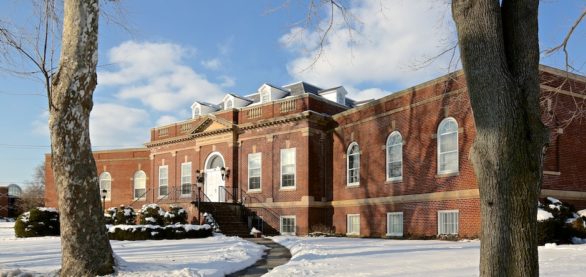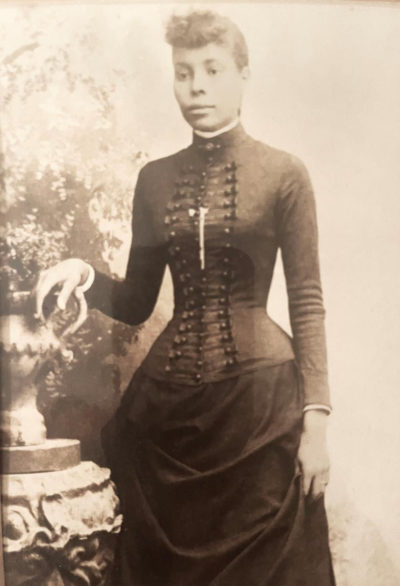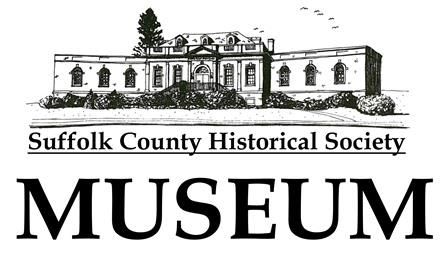

Photo of the Week
Week of February 13, 2023
FROM THE SCHS LIBRARY ARCHIVES
“How shall we know it is us without our past?”
– John Steinbeck
~~~~~~~~~~~~~~~~~~~~~~~~~~~~~~~~~

BLACK HISTORY MONTH
PHOTO OF THE WEEK
By Cheryl L. Wade, Guest Contributor
Cheryl L. Wade is the Harold McNiece Professor of Law at St. John’s University School of Law. Her book Predatory Lending and the Destruction of the African American Dream was published by Cambridge University Press in 2020.
Mary Louise Funn (b. 1869, Virginia). (Photograph reproduced with the permission of the guest author.)
——————
In 2018, I visited a portraiture exhibit at the Metropolitan Museum of Art in New York City with photographs of African Americans from the 1940s and 1950s. I was stunned by a note to visitors at the entrance of the exhibition: “If you recognize a subject, will you identify him, and inform the museum of his fate?” I wondered why the museum exhibited photos of anonymous subjects rather than ask African Americans to provide photos of their loved ones that would have come with the names and stories of the people photographed.
So, I am happy to provide this Photo of the Week: a photograph of my great-grandmother, Mary Louise Funn. With joy I describe (part of) her story and not just her image. The photo was probably taken in a photographer’s studio in rural Virginia, not in Suffolk County, New York. She married my great-grandfather, Thaddeus Ford, in 1892. They owned a two-story house and land in Virginia where Thaddeus made a living as a teacher. My great-grandparents’ success was owed to the Reconstruction era policies implemented in the years after slavery’s abolition where many impediments to African American achievement were removed. But when Reconstruction ended, the successes of my great-grandparents’ generation became inaccessible to their children. Six of their ten children migrated to Riverhead and Mattituck on eastern Long Island at different times during the second and third decades of the twentieth century. My grandfather, John William Ford, Mary’s second son, had left school in Virginia after the third grade and came to Long Island years later to work on or near a potato farm. He met my grandmother, Pattie Frances Hayes, in Suffolk County. She too migrated from rural Virginia to Suffolk County and worked as a domestic for a white family.
My maternal grandparents were part of the Great Migration, but their kind of journey has been infrequently discussed in research about this twentieth-century phenomenon that began in 1915 and lasted until 1970. Most Great Migration stories and discussions focus on individuals who left the rural South to work and live in cities in the northern, midwestern, and western regions of the United States. My grandparents’ migration pattern, however, was from the rural South to rural New York. In many ways their story was typical. They migrated to escape violence and economic exploitation in the southeastern United States under sharecropping and other repressive systems. But my grandfather “escaped” to the potato farm industry of rural Long Island, New York, and my grandmother labored as a domestic for Long Island white families. Their post-migration lives were not very different from their lives in the South. They continued to do the same type of backbreaking manual labor on Long Island as they had performed in the South.
But because of my grandparents’ hard work in Mattituck and Riverhead, the socioeconomic course of my family was reversed. Decades after migrating to Suffolk County, my parents and I went with my grandmother to visit the white family for whom my grandmother had worked as a maid in Suffolk County. By then, my grandmother, with only a sixth-grade education, had gone to cosmetology school and opened a hair salon. She and my grandfather had supported my mother as she earned a bachelor’s degree in science. My grandmother was proud of her family – her daughter and young grandchildren. She wanted her former employers to know that her personal migration story was a narrative of upward mobility that began when she arrived on Long Island.
~~~~~~~~~~~~~~~~~~~~~~~~~~~~~~~~~~~~~~~~


—————————
Copyright © 2023 Suffolk County Historical Society. All rights reserved.
——————-
————————–
===================================================

AAQ / Resource: Riverhead Ford | Riverhead Lincoln
___________________________________________________________________
